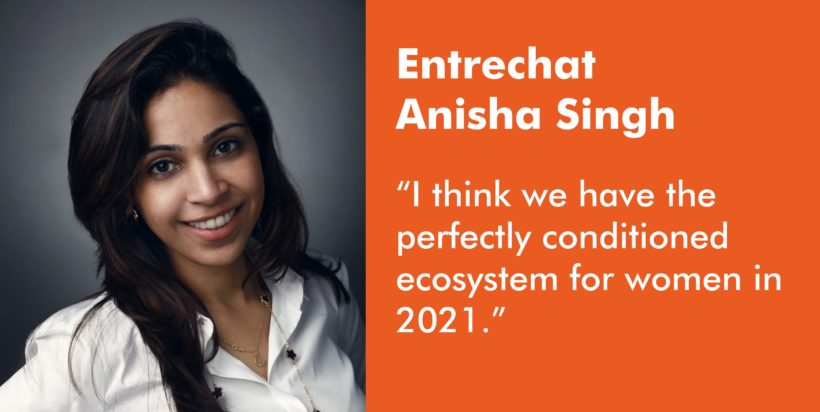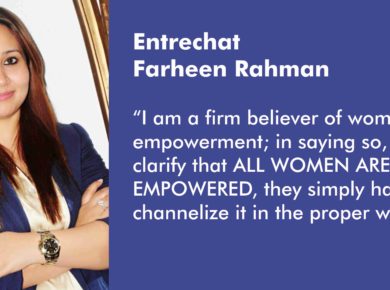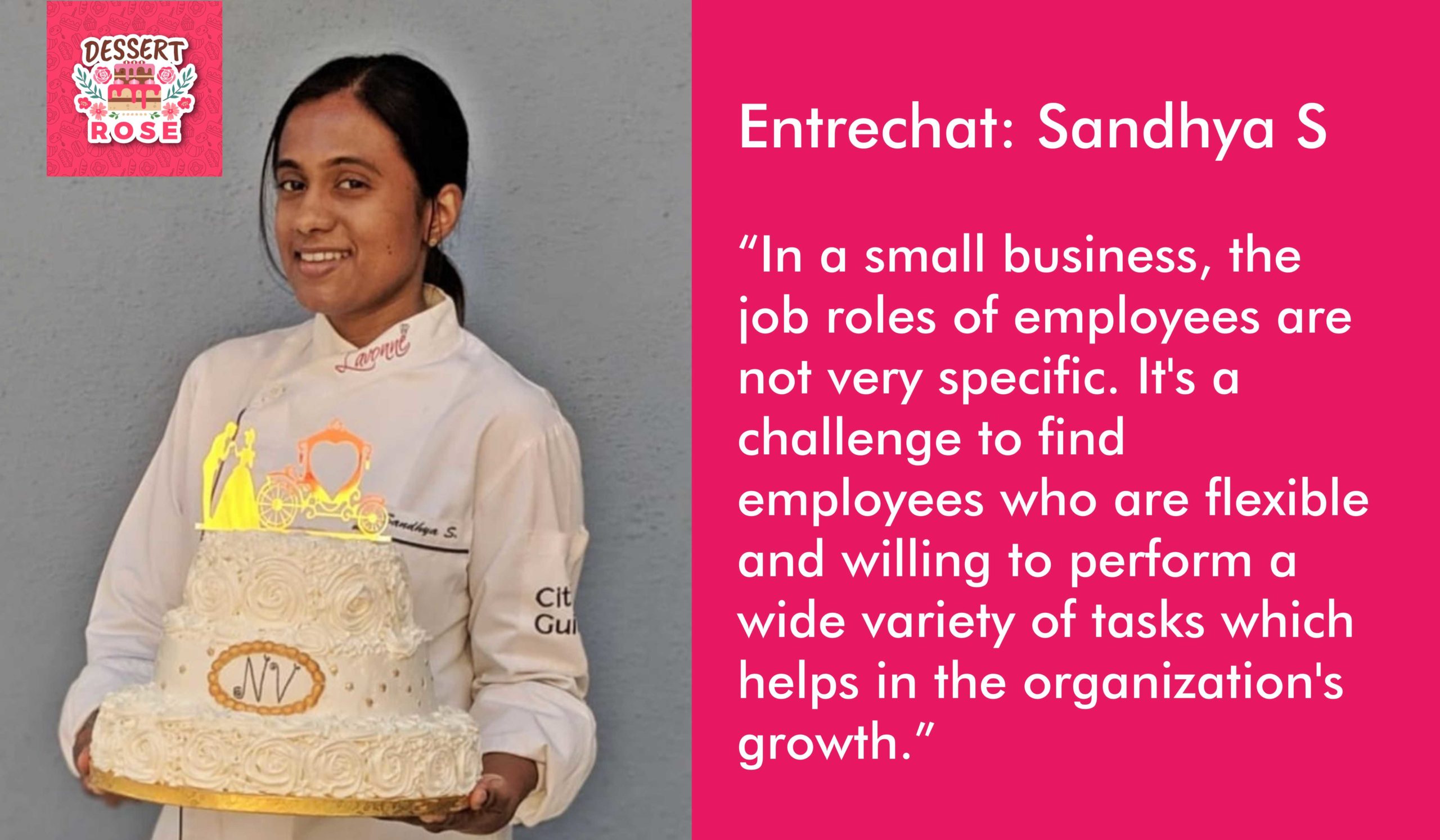Anisha Singh is an Indian digital entrepreneur, known for speaking her mind especially while advocating women rights and promoting women entrepreneurship. Anisha began her career with the Clinton Administration on Capitol Hill, helping women entrepreneurs raise funding. She worked with Centra Software in Boston setting-up e-learning ecosystems. Her return to India saw the launch of Kinis Software, which provides digital content solutions. Leaping ahead, in 2009 she launched mydala, which is now India’s largest local services marketing platform. Again, she launched She Capital, which invests to help women-led businesses scale the maximum heights. She believes in defining successin her own terms, achieving it by her own rules, relishing it and using it to help others and living a life she is proud to live. Today she shares the story of her entrepreneurial journey with us.
Q. Yours has been an inspirational journey, especially for women entrepreneurs. Tell us what prompted you to take the leap into entrepreneurship and eventually set up She Capital?
A. There was never a grand plan which I had. I had seen my father go through hard times in his business, so I had decided NEVER to be an entrepreneur! However, one should perhaps never say ‘never’ because then that is what you end up doing. I had a company prior to mydala, which I sold in the US and started mydala. I think once you get bitten by the entrepreneurial bug, it only results in getting addicted to entrepreneurship. When I started talking globally about women entrepreneurs during my tenure at mydala, the numbers and data bared were dismal and sad. It was then that I realized that something needs to be done because only 2% of the total universe funding went to women entrepreneurs. By 2012-2013, I was mentoring many women entrepreneurs, so it was evident that the community of women entrepreneurs was growing but the funding was not there; thus, when I couldn’t find a solution for this problem, I decided to create the solution myself. That is how She Capital came into being. That’s is when I shifted from the entrepreneurial to the VC world.
Q. What are the focus areas of She Capital; are there any specific verticals that you cater to?
A. We don’t have a specific sector focus, because we were already labelled as a company which has narrowed down the focus of their funding to women entrepreneurs. My background being technology for the last 20 years, that is one thing we have stuck with; we fund technology ventures and I also feel, we should only get behind what we can add value to. Broadly we look at consumer tech ventures which are there in the market.
Q. In India, most of the women entrepreneurs are not even aware of any government support schemes and therefore they do not approach for financial support from external institutions – would you blame this on lack of awareness or an inherent reluctance of women to reach out for funds?
A. Surprisingly, it is not just our women entrepreneurs who are unaware about schemes, even if some are and they reach out to the officials for assistance in getting funds, the government officials more often than not, do not have the knowledge about these schemes or the steps required to be taken to take advantage of them. I think the infrastructure and intention are there, but the execution on that has been very weak. Now, however, things are changing – we see Niti Ayog, Invest India, very active in this sphere of work. As far as women entrepreneurs are concerned, even I didn’t know about venture funding – it is a ‘market maturity’ aspect we have to understand. For example, way back in 2007, I didn’t know much, I had very little knowledge – now, over the years I have learnt. Now many women are very aware about how to raise funding, they know exactly what the investors are looking for. However, even today, they are not as sophisticated as their male counterparts. Their awareness on some levels like how to show your financial projections and so on, needs to be enhanced. However, once women get the knack of it, achieving the sophistication of presentations and projections, there will be no looking back for them.
Q. Do you get enquiries from women beyond the Tier 1 cities; women entrepreneurs residing in smaller cities?
A. Yes, in fact it amazes me to see the level of sophistication or researched knowledge some of them have. Today, there are some really upbeat business ventures being built in tier 2 cities. And the biggest difference between a female founder and male founder where financial projections are concerned, is that, a woman led company will always focus on the realistic side. However, going beyond realism, having that grand idea and aspiring towards it should also be there, which women don’t tend to do! This is the only thing women need to do, especially women entrepreneurs coming from tier 2 cities. They are more humble in terms of financial projections and growth, which one on hand is appreciable as it is a very realistic approach; but on the other hand, you have to be able to look beyond and see the bigger picture on the scale; today, that is imperative. Before you approach investors I would request all female business founders to study your business plan really well, be realistic but also think about how you can be a part of the bigger picture, and aim towards more growth.
Q. What are some of the tips you wish to give women entrepreneurs who are looking for generating investments for their business ventures?
A. The first advice would be to do extensive research and then send out your email when approaching an investor. If you are going to an incubator it is different but if you are going to a venture stage investor or an angel investor, have your deck in place, because we are not going to hand-hold you through your journey. Do not send out a small email with nothing in it for the investor to understand, because the first thought any investor would have is that if you, as an entrepreneur do not have the enthusiasm or energy to talk about your idea, why would we believe that you would have the energy to take it forward after we invest in it! Also, research investors – not all investors invest in all types of business models. This is the kind of homework that needs to be done. Secondly, a humble request to all female entrepreneurs is to know your numbers and do not shy away from them. Numbers are the backbone of any business and if you understand business, you will know your numbers and you should talk about it or else the investor feels you are not comfortable. If to begin with, you aren’t comfortable, then how will you lead the company? Other than that, in general you should be able to answer questions around your business and communicate with clarity. One of the things I request people to do is to start networking early, reach out to people to get more advice and be visible online. This should be done when you are just starting to grow and not looking for funding. At the end of the day, it should be understood that an investor is putting money into your business and the only reason they are going to do that is when they have confidence in you as a founder. If you manage to build this relationship with them right from the beginning they will be more positive in their approach towards either investing in your venture or referring you to other investors.
Q. In India, most of the women enlisted as ‘co-founders’ are actually sleeping-partners; at She Capital, how do you find out if the business is really led by a woman?
A. I don’t think people need to worry about that, one can tell who is in-charge of the business in question. I invest because of the passion that I see in the founder, and I want to see reflections of myself in that person. If somebody is a sleeping partner, they are not going to have that passion. The reason you are investing in the business at an early stage is because you can see the passion in the founder and know what they can make happen in future.
Q. You have been talking about mentoring women entrepreneurs for a long time now. So how important do you feel is mentorship, especially for a woman entrepreneur?
A. There are studies that show that if a male and female are equally successful, a female will attribute it 70% more to the mentors who have mentored her and her support network. It is a very important aspect for female founders. That been said, I have over the years seen that the word ‘mentor’ has become slandered – people don’t understand it. I would say, you don’t have to reach out to big names for mentorship, mentors come in all shapes and forms. I don’t have a single person as a mentor, I had different people who have been mentors to me. I think this is the way we impact others, especially women on other women. We can all be mentors to each other. Senior female entrepreneurs can share their learnings with the beginners and this can lead to much peer-to-peer learning as well. Right now it is important that we realize that anyone, even your friend who has the expertise or knowledge can be your mentor. So, when I talk about financial projections, if there is a woman who knows how to do a financial projection, she should look ahead towards trying to mentor more women and give back to the ecosystem which we all belong to.
Q. During the ongoing pandemic, work-from-home has become a reality and ideally, women entrepreneurship should grow in this situation, but the pressures of work have also increased because of working from home. So how has the situation been for you and women entrepreneurs in general according to you?
A. It is a myth I wish to bust! I came across many male colleagues and the press who said that work-from-home is going to help women and I wished to get a reality check on this. I put in a LinkedIn post asking female founders what they felt about the same. Not surprisingly, around 68% women said that work from home is tough – and I am included in it! Our personal and professional lives have merged into one, making it extremely difficult for us. The workload on women has immensely increased and I think the jury is still contemplating on whether work from home has been a positive step for women or not. I would be happy for the situation to go back to normal.
Q. In 2021, with virtual becoming the new reality, do you see any emerging sectors which will create new avenues for women entrepreneurs?
A. EdTech for one, is going through a weird bull-market, never seen before. I think Covid19 has escalated its valuation but personally, I feel the importance we are attributing to EdTech is beyond what was due. I am excited for the number of consumer-tech companies coming through, as it is making life so convenient. Health -tech is another sector which is developing fast and the benefits of it are available for all to reap. For example, the mental-wellness programs have really worked wonders for everyone during the pandemic. Finally, I am seeing many initiatives being taken for women, which weren’t there previously. It is heartening to see so many initiatives and products being built by women and for women – for example so many consumer tech companies are going ahead with these initiatives which give women the opportunity to emerge and excel. Previously the approach was ‘one size fits all’, and females were left with limited opportunities. However, now be it underclothing for women or wellness promoting pills, women have a wide range of choices to select from. I think all this, driven by technology will take precedence and I am very happy to be a part of it in a way.
Q. What can be done to improve the overall entrepreneurship ecosystem in India so that women not only can start ventures but aim to scale them as well?
A. I think 2021 is going to be great year for women, followed by 2022, which will be even better. I have been in the industry for quite some time now, and in comparison to say 2015, now the number of focused women incubators have escalated. Also, podcasts like She Diaries are providing a great way of knowledge sharing, thereby enabling peer-to-peer learning. Thus, I feel the ecosystem is developing just as is required and there is a lot of activity going on. While some start-ups may take off or some may fade away, the initial initiative coming from women, shows that the ecosystem is maturing. I think we will have the perfectly conditioned ecosystem for women entrepreneurs in 2021.










